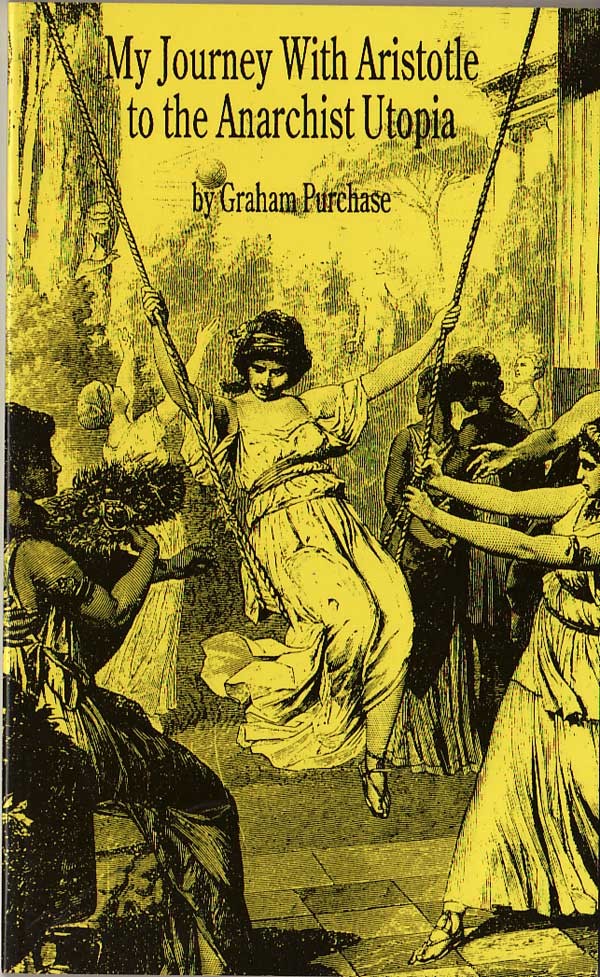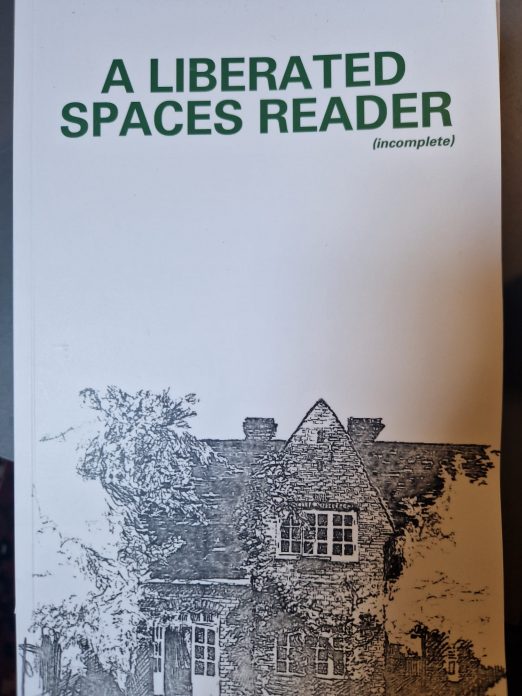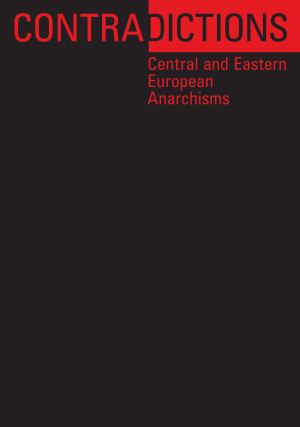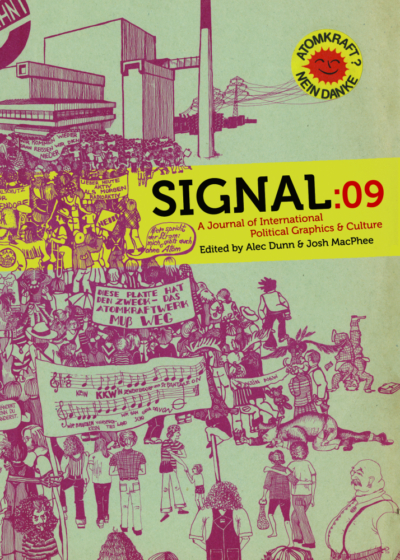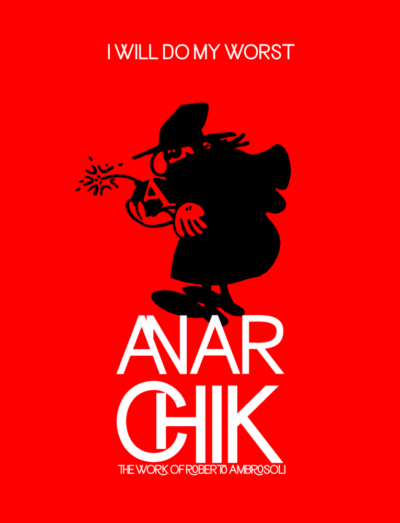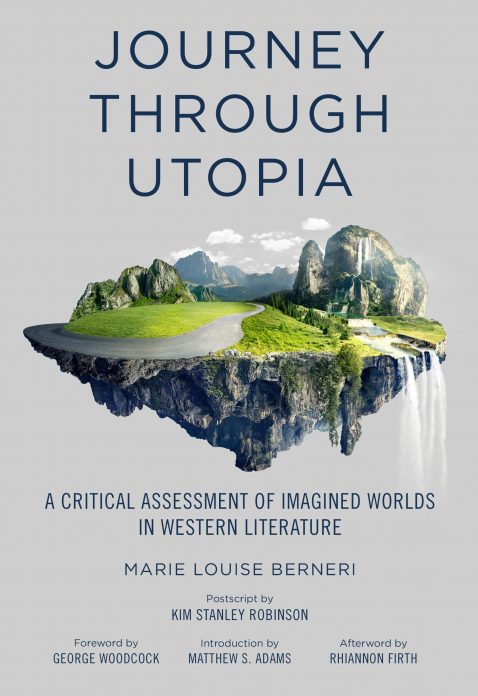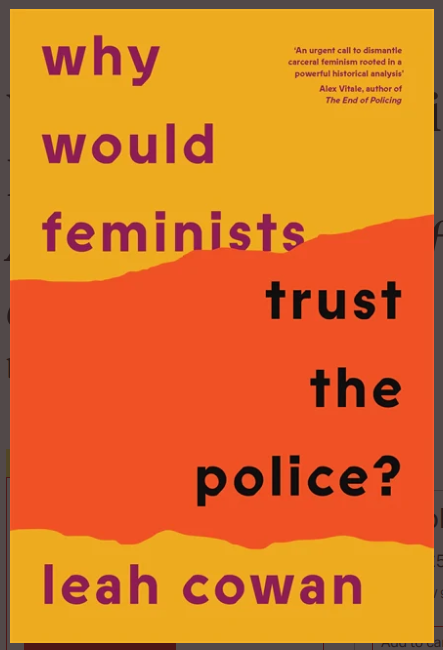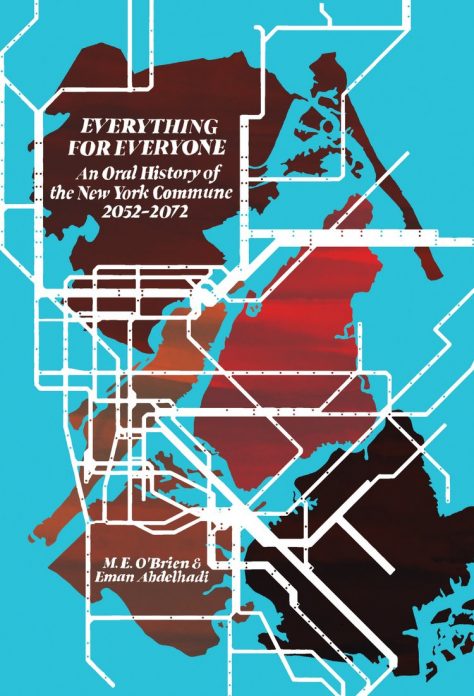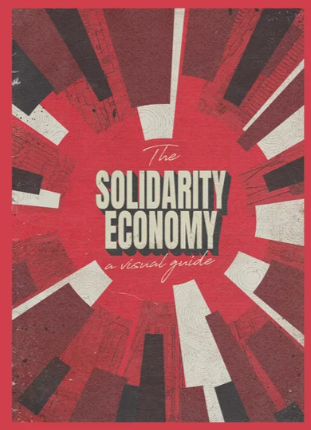The shop will be unavailable for next couple weeks for some summer travels, and will reopen on 1st August!
My Journey With Aristotle…
£9.69
My Journey With Aristotle To The Anarchist Utopia by Graham Purchase is a colourful piece of anarchist fantasy fiction that is now a collectors item!
Description
Here’s a chapter..
I walked out of the cave, revelling in the bright sunlight. The sunbeams intoxicated me, taking over my entire existence, leaving me conscious only of an intense redness of light and warmth. Two or three days (who knows how long?) in that miserable damp and lightless cave had left me like a waking reptile, motionless and transfixed, basking in the morning sun. As the increase of warmth and light gradually achieved a proper balance within me I began to open my eyes and look about. And what a view! I found myself high up on a hillside overlooking a large walled town or city surrounded by numerous trees. My ears, numbed by the cold in the cave, suddenly came to life and my mind was filled with the pure pleasures of a spontaneous self-ordering crescendo of a hundred separate birdsongs. So taken was I by the free vista before me that I had forgotten to take stock of my immediate surroundings and I hastily looked around me in case I should stumble on the steep hillside or was otherwise in danger of some sort. Not 20 meters away from me was a very, very old man, sitting contemplatively in a natural chair in the hillside overlooking the city. He looked surprised but his welcoming and accommodating gestures indicated that he had been sitting there for some time and would very much enjoy my company. I clambered towards him being careful not to slip on the expanse of loose and jagged scree which lay between us. He stood up and greeted me, sensing that I had been through some ordeal and being anxious for my safety. "Hello, Hello, Aristotle is my name. What's yours?" "Tom," I replied. "Pleased to meet you," he replied. Aristotle held out a hand to help me up into the chair. Despite his great age he was nonetheless strong and supple and he confidently lifted me on to the platform. We stood next to each other on the ledge in silence looking down at the city below. "I should say," Aristotle said in a slow and thoughtful way as if not wishing to break the silence, "That the ideal size for a city is that it can be taken in in one single view: that one can see its limits and its wholeness in a single glance." I thought of the huge, lawless and sprawling cities with which I was familiar and replied: "Yes...perhaps that would be about right. Any bigger and they simply become formless and ugly and a drain upon the countryside and a danger to its social stability." Aristotle nodded in agreement. I continued: "Take Mexico City for example?" Aristotle looked puzzled. He had obviously never heard of Mexico City. "I've never been there myself," I assured him, "but I am told that it has twenty or thirty million people and that it is so large and has so much pollution that the birds drop dead out of the sky when they try to fly over it." Aristotle looked pained, and said: "If there is indeed such a place, and I hope that there it not, it would surely be a most terrible existence, less than human, for its citizens could not easily leave its wall for nature, and social justice and good citizenry would be impossible amongst what could only consist of a herdlike agglomeration of total strangers." Aristotle mused as if stunned by the possibility of so vast an organism. "Perhaps they have large memories and can remember the affairs of a million people all at once whereas we can only concern ourselves with a few thousand at most?" "No," I replied, "I think that no such beings exist...and that indeed a city of 20 millions would be a quite awful place. Indeed I doubt whether such a place could be called a city at all as you suggested." Aristotle looked pleased and congratulated me on my answer: "Yes, Yes! You are indeed a wise man," and paused. "Even ancient Athens, whose population at its height little exceeded 250,000 persons, had a ten year waiting list for hermits and philosophers who wished to enjoy the solitude of mountain tops and hill-caves. Its surrounding country regions became so degraded and denuded by its numerous farms and the pattering of feet that it could barely produce enough olive oil to keep its houses lit for more than a few weeks without continually importing additional supplies from every corner of the Mediterranean basin." I had heard of ancient Athens, but knew nothing about it. I simply nodded respectfully as if in agreement and attempting to disguise the fact that I was somewhat awed by his gentle, but wise and forthright manner. We again stood in silence next to one another looking down upon the city before us. Aristotle again broke the silence: "I once knew a great thinker, sadly no longer with us, called Plato. He cared little for nature and his ideas concerning it were undoubtedly profoundly mistaken. According to him all the beings and objects in nature were but an imperfect copy of a perfect combination of unchanging and eternal geometrical formulas that existed he knew not where!" Aristotle halted, and said, "I'm not boring you am I?" "No, No," I replied, "please go on." Aristotle continued: "Anyway, following this line of reasoning, my friend Plato imagined what he considered the perfect form that an ideal city might take and published his ideas upon the subject in a famous book called The Republic. Have you ever heard of this book?" "No," I professed, I had not. "No matter," he replied, "but did I think that drawing up plans for the perfect city or society was sensible or foolish? Was it likely to end with good or bad results?" I thought for a moment. "No," I at length replied, "nature and society are always evolving, changing and modifying themselves in accordance with new developments and new challenges. There can be no blue-print or unalterable plan of action for both nature and society do not possess such rigidity. Society is a process not an unalterable series of facts. Such plans will surely, become a dogma and hamper the creative forces of the people." Aristotle looked pleased with my answer. "Ah!" he exclaimed, "then you know of the ideas of Heraclitus. He of all the founding fathers of ancient and modern wisdom perceived that nature was a process and moreover, that this fact was above all, a positive one that should always be acted upon. Plato who in his book The Laws, glorified the ancient Egyptian code which, he claimed, had remained unchanged for 10 millennia, and condemned evolution, adaptation and self-creation as merely obscuring the unceasing and eternal mathematical truths of which nature was but a dull and insipid copy, from which no meaningful knowledge could usefully be gained." I had become a bit lost, I had no great history for philosophy or history but I felt comforted by the fact that this wise old sage should be so pleased with the answer to his question. Suddenly, above our heads, SWOOSH!! We both looked up, startled by an eagle, circling not 30 feet above our heads. Once, twice, thrice and a half times it slowly revolved around us before gracefully gliding off a little and then outwards and upwards in an ever widening encirclement of measured degrees before drifting into the obscurity of the horizon and vanishing. Calmed by the serenity of its long departure Aristotle and I again stood gazing down upon the city like baby eaglets staring agog with our eyes wide open at the world below us from the safety of our eyrie. Noon had long past and the faint shadows of mid-afternoon began to creep into the cracks and crevices of our perch: "It's time to go," Aristotle said suddenly. "This is no place to be at night-fall and I can see that you are a stranger in need of guidance and assistance... please..er..do let me at least guide you down the mountain?" Having not the least idea of what time or what place I had arrived at I enthusiastically accepted his offer and we set of down the rough scree-runs of the high peak. Our concentration was not broken until we reached the first vegetation and a semblance of a rough track. Already the peak seemed distant, but its vista was still firmly imprinted upon and occupying our minds. We paused a while. "Tell me Aristotle," I said; "Why does the city have walls like the fortified towns of old? Have you reason to fear attack?" "Oh! No!" Aristotle replied; "quite the contrary. Since the reintroduction of Wolves, Bears and Lions into the area it was considered necessary to have a wall in order to safeguard the citizens. Our Bio-Regional Wilderness Reclamation Project started nearly a 1000 years ago and has been most successful. Bears are now frequently to be seen bringing up whole families of cubs not more than a few miles outside of the city walls. The walls have Eight main gates," Aristotle pointed to each one in turn and still pointing, he said, "the wall is also broken in 13 other places; the 3 main rivers of the city; there! there! and there! And the 10 wild-life corridors, which are the green-strips that meet in the city's central park, which is just there. A large grid has been placed at the entrance to the wildlife corridors which lets most animals in excepting that of large and dangerous land animals. The rivers have proved more difficult. As you might well know Bears love fish and are excellent swimmers. But the importance of allowing water life to travel freely in and out of our city far outweighs the consequences of the very few times when an occasional bears has entered the city by this method. None of these instances has ever resulted in serious injury. Once out of the City some citizens carry stun-guns, but generally I prefer simply to be on my guard. Our city opted to go for 100% self-sufficiency and although there are still some quite small areas of the bio-region fenced of for agriculture, the vast majority has been returned to wilderness. The task was not at first an easy one, but `from little acorns doth mighty oaks grow'" he mused... "Next year we are celebrating the 1st millennium of the Bio-Regional Wilderness Reclamation Project......Actually," Aristotle concluded, half jokingly, "there is not much point to it really....the region's wilderness mostly looks after itself these days. Apart from trips to gather medicinal herbs for the hospitals, fishing hunting trips, camping holidays and a couple of specialized wilderness camps, one for the handicapped and another for sick children, there is virtually no organized exploitation of forest products and very little reason to manage the forest anyway." I was quite amazed by what Aristotle had told me. I had mistaken the 10 green pathways as freeways linking downtown with its suburban perimeters: "Are all cities now built like this?" I asked. "Oh! No!" Aristotle replied, "the Social-Ecological Revolution that destroyed the artificial barriers of the national-state era meant that the inhabitants of each ecological region had to decide for themselves how best to re-integrate their life-styles, towns and cities with the regional ecology of their area. Some bio-regions, such as the neighboring one, had opted for minimum programs. Comparatively small reserves were left to native wilderness and their major villages and towns were still heavily dependant upon agricultural produce from the surrounding countryside. Naturally the agriculture had been down-scaled to more reasonably sized farms and areas were divided up by bands of native bush. They had also made some significant findings and progress with forest horticulture. Although the neighboring bio-region was less wild and much more manicured than ours, ironically the attempt to produce a 100% self-sufficient city, that took nothing from and gave nothing out to its surroundings, had led to a biologically sensitive but overly bio-techno-tronic city environment. The neighboring region in making use of more traditional approaches to rural land usages had never taken up the challenge of environmentally safe bio-technology and had opted for a low technology solution consisting of a mixture of a large number of predominantly agricultural village communities supply produce for themselves and for the region's cultural and artistic centers. Some regions had attempted to dissolve cities altogether and return to loose federation of small communities linked along major water-ways, whilst at the other extreme attempts had been made to construct cities within huge domes totally isolated from the rest of nature. Ours, and our neighboring region's approach to eco-regional integration both lay somewhere in the middle of these two extremes." "The great diversity of regional experiments world-wide had led to a flowering of practical inventiveness. It was not so much how people went about achieving balance, but rather," Aristotle concluded, "that everyone in every ecological region had come to deeply identify with their home-place, and care for that place, and in so doing the ecological health of the whole planet had thereby been assured." I thought carefully about Aristotle's description of his world and of my own, with its huge sprawling cancers which frequently and foolishly covered and entire region with tarmac, steel and brick. I thought of the stupid conflicts between warring states whose boundaries crudely divided, rather than complimented, nature in an attempt to carve up the world according to an abstract and entirely human-centered concept of national politics. At length I spoke: "I have strayed further and faster than I at first thought. I am indeed a stranger, for what you tell me of your world is not only strange, but also completely new to me. Please?" I implored him, "take me to your city and to your neighbors' region and show me whatever you can so that I may benefit from your wisdom and take this knowledge back with me when I return. Our planet is in great ecological trouble," I exclaimed passionately. "Our peoples have mercilessly and greedily destroyed the soil and the forests for the short-term benefit of powerful and corrupt elites who divide our world in the interests of themselves rather than with those of nature." Aristotle thought for a moment as if perplexed, and said: "I am very busy, but if what you say is true then perhaps it is my duty to assist you. I shall try and find the time. In the meantime we should get upon our way as the shadows are drawing closer and we have much ground to cover before nightfall." We set off down the track, slowly and methodically, tackling each out-crop or rock carefully and individually. The air had become cooler and we descended the mountain with a sense of urgency and purpose. Despite Aristotle's great age, armed with his staff his gait was nonetheless as sturdy and strong as that of mine. The click clack of his stout walking stick marking out the steady and regular progress of our footsteps. After about an hour the course and entangled shrub gave way to dense hill forest and the path levelled somewhat. We again began to relax, confident in the fact that even if we should be caught out upon the mountainside come nightfall the most hazardous part of the decent was now behind us. "What," I asked, "were the large glass domes that were scattered everywhere about the city?" "Oh they're not glass," Aristotle replied. "They're made of a thin membrane of clear plant extract, an organic bubble if you like. They are inflated over the vegetable garden in each of the city's major suburbs. The plots are fertilized by general organic wastes and provide fresh salad vegetables for around 2000 people. Whilst there is still a danger of frost the bubble protects the young plants. The bubble is, however, completely bio-degradable and by late spring, providing there has been enough rain they will have completely dissolved away. It has been very dry this year and it is unusual to see them this late in the year. The membrane is permeable enough to provide ventilation and let in some rainwater whilst still able to contain moisture and warm-air. The membrane is naturally rich in important trace elements and fertilizers and as the bubble dissolves it provides a valuable liquid food to the vegetables at about 2 weeks to 1 month before maturation. The bubble is strong enough to prevent, say, bird damage to early strawberries, and biological pest control is easy, in the sense that a predatory insect or animal once introduced stays where it is put until the infestation has been eliminated. Except in very, very warm winters when fungal diseases may be a problem the bubbles have been a great success and yields have been substantially improved. Only about 1 bucket of the particular plant extract is enough to cover an extremely large area." I marvelled at Aristotle's descriptions of his city. Compared to the listless pessimism of my own age his confidence in the future was uplifting and inspiring. Humanity, by developing a positive attitude to nature, had perhaps again learned to live in harmony, comfort and security with the Earth. We continued walking down the track, the trees were alive with bird-life and the forest floor carpeted with all the characteristic flowers of spring: Stitchwort, Celandine, Wood-Anemones, Blue-bells and Hare bells. The vibrancy of spring entered us and sharing in its joy we unconsciously celebrated every new plant that was thrusting upwards out of the reawakened soil. "Is your society predominantly vegetarian?" I asked Aristotle "Certainly" he replied; "there are some people who will not eat any meat, but the majority of suburbs keep chickens to scratch-up and fertilize their communal vegetable gardens and most people are happy to eat them. We cannot grow enough vegetable to sustain the whole city and large-scale production of wheat and soya beans is as destructive of the soil as that of beef. Although the forest has many types of wild berries, roots, fungi and other fruits, all of which are routinely collected, it is also abundant in game, especially deer and pheasant and the numerous streams and rivers, are a plentiful source of trout, salmon and carp. The gastronomic economy of the city is therefore predominantly vegetarian--but supplemented by fresh meat form the forest." "Rather than destroying forest land for cereal and legume production we have preferred to keep the forest and not to over-harvest berries and other forest plants, which are food for all the other animals. We supplement our diet by culling those food animals that have obtained unusually large populations. Pheasants and deer have always been plentiful and constantly reducing their number leaves space for other, much rarer animals who share a similar habitat. Wild meat contains little fat and has a large variety of different proteins and trace elements. Consequently one is not required to eat a great deal of it, nor was the eating of a modest quantity seen as detrimental to the environment or the health." "Vegetarianism" I replied; "was becoming more and more popular in my time and it seemed as if this was the way things might go. Besides, aren't there ethical reasons why one should not eat another living thing?" Aristotle agreed, but said sadly: "Nature does not conform to human ethics. The white sap of a juicy young lettuce or the red blood of a plump and lusty pheasant, what are the differences in reality? In order to live one must consume life. There are communities, even within Bear City that are strictly vegetarian and even vegan (and this of course has certain advantages, like being able to directly compost your own shit). As you might well know botulism, whose bacteria is only found in meat products, lives up to four years in the soil. Although some bio-regions are completely vegetarian þ and perhaps they have created a more humane society in consequence þ quite large sections of their regions have been given over to grain and bean production, whereas virtually all of our region is wilderness. Paradoxically, however, our city is almost completely edible." "Edible!" I exclaimed. "Oh yes, our region has pioneered the science of edible chemurgy." "Chemurgy?" I enquired. "Yes, actually it was first popularized by the 2nd millennial industrialist, Henry Ford who in 1941 unveiled his `biological car'. The body was made of soya-beans, the wheels of Golden Rods, and it was fuelled by Maize. We have a replica in one of the city's museums. Although the idea never caught on in his own time and although we no longer use Maize or Soya-beans we have taken the science as far as anyone in the world. Our city is not just crudely bio-degradable but actually edible!" "Surely," I said, "it must be eaten away by insects, rats and mice?" "How clever of you to think of such a thing," he said. "Fortunately it tastes foul and no mammal will touch it. Also we paint a vegetable lacquer on it every few years that prevents harmful insects from eating away at it. Much as you used to do with wood in the olden days to prevent it from rotting." The city was still just in sight as we were still quite high up. A mosaic of flashing white bright light intermixed with ares of gentle and natural greenery. "So why does the city glisten so?" I asked. "Oh you'll see when we get there. If we get there." He looked worrying up towards the sky. "Just before we enter the city on this side there is very steep decent which would be very dangerous to attempt once it is dark. All your talk has delayed us somewhat. Perhaps we had better stay at Jack's lodge tonight. It is less than a mile from here and we'll go down to the city in the morning." It was Aristotle who had done most of the talking I thought. The track branched shortly after and we took the path to Jack's lodge. "You're in for a real treat," Aristotle informed me. "Around where Jack lives was originally a wildlife reserve when the rest of what you see around you had been clear felled. A few of the trees reached 3000 years but most of the original ones are now dead. The reserve obviously had not been large enough to sustain even a semblance of a working climax eco-system, nonetheless it was an original patch of forest not more than two miles from Bear City. It was here that the Bio-regional Wilderness Reclamation Project began, circling outwards in all directions from its perimeter. Although it was no longer the literal center of the forest, it was considered as such and all the young people visited the place at least once in their lives in recognition of the momentous changes which had enfolded outwards from it since our community planted the first trees on the reserve's edges all those years ago." The trees were truly magnificent. Vast logs, huge lumbering objects, many, many times bigger than whales covered in emerald green moss lay strewn between gigantic poles stretching upwards to the heavens. Some were half-dead, with a single massive branch holding tenaciously onto life, alongside others growing in their absolute glory, at the pinnacle of their existence. Enough light penetrated the canopy for the odd patch of Spear or Birds nest fern, but these too had reached massive proportions and were made to look all the more impressive against their mighty backdrop. Suddenly the track gave way to especially constructed aerial walkways. "Why have these pathways been built in such a beautiful and unspoilt place?" I asked Aristotle. "Because so many people come here that they're footsteps would compress the soil around the trees and seriously damage their life prospects. It is Jack's job to repair them during the winter when few people come out this way. The first day of the Reclamation Project, 999 years ago was around mid-summer and people naturally want to celebrate that event by coming up here then." As we went round an unusually large trunk upon which was engraved To Quaama Lodge, a huge circular cabin came into view. It was nestled upon a hillock in the middle of a circle of six enormous Oregon Pines. Conscious that we had reached our destination and in anticipation of rest I suddenly began to feel how very tired I was. My body began to ache and for the first time that day it became
painful to keep up with Aristotle's ever-strident pace.
Additional information
| Weight | 0.175000 kg |
|---|

